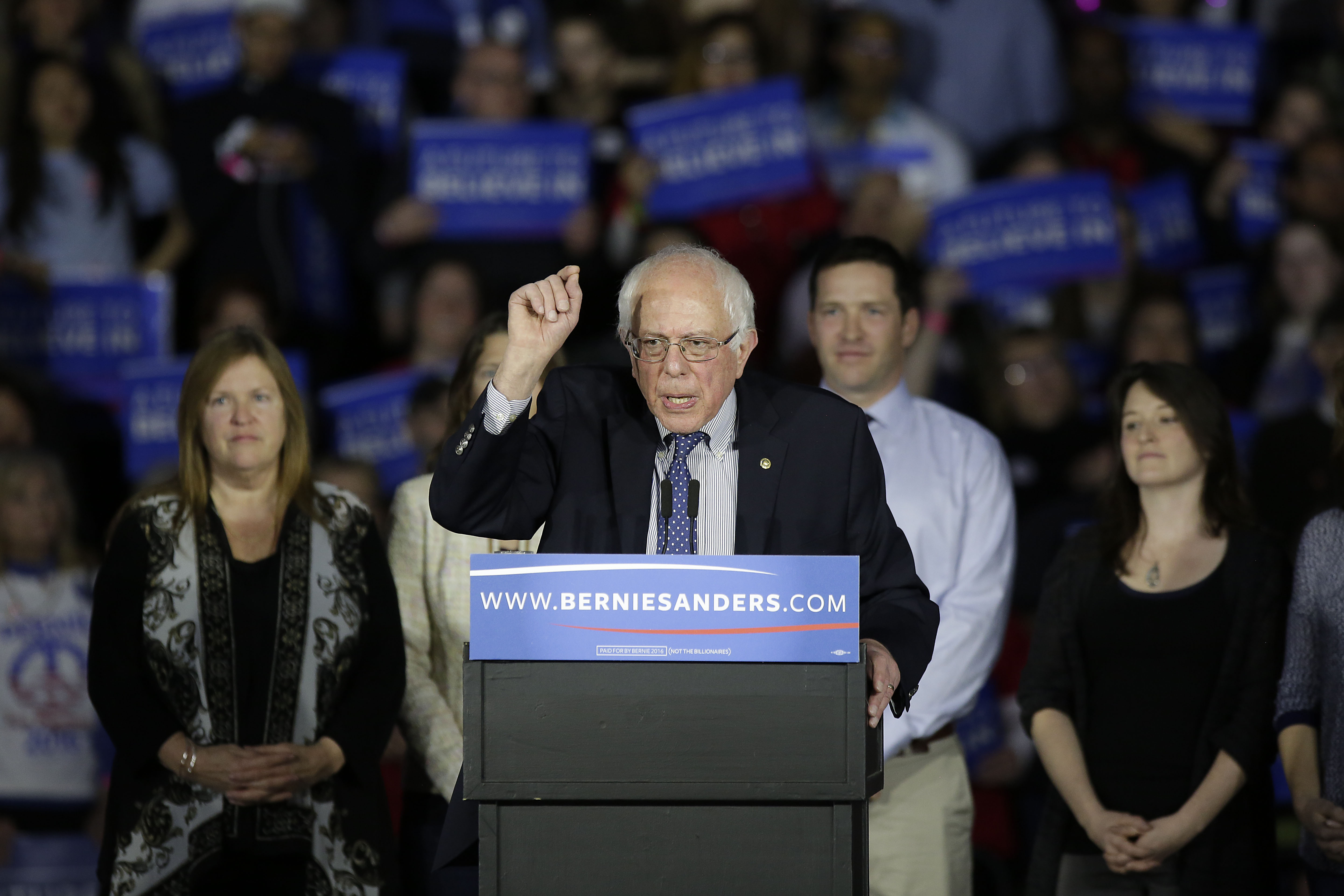
/https://static.texastribune.org/media/images/2016/02/28/IMG_9632.jpg)
So you have large, profitable corporations over the years pay zero in federal income tax. "And I worry that we have a tax system, which is in many ways extremely rigged. "I do worry about the deficit that we have and the national debt that we have," Sanders said. When it comes to taxes, part of that message is that tax increases help pay for all of the spending Democrats have passed or plan to approve in the future. Some of that will involves creating pressure and spreading a message from the budget committee. "And my job is to rally the American people and to create a strategy." "There is not unanimity within the Democratic Caucus," he said. When it comes to the minimum wage, Sanders says part of the challenge will be demonstrating that the Democratic Party is with him on the policy. Just 42 Democrats voted for Sanders' plan to increase wages, and his long-term plans for wealth redistribution and cutting fossil fuels are certain to meet similar objections. That fight was on display in the last reconciliation fight when Democrats failed to pass a $15 federal minimum wage. Those proposals are likely to reignite a familiar battle between centrist Democrats and the demands of the party's progressive base that Sanders represents. Politics Building A Big Infrastructure Plan, Biden Starts With A Bridge To Republicans That bill, which Sanders helped move through the Senate, included billions for unemployment insurance, housing vouchers, rent assistance, stimulus checks and direct aid to millions of people.

The focus on taxes comes weeks after President Biden signed $1.9 trillion in new coronavirus relief spending into law. Those with estates between $3.5 million and $10 million would be taxed at 45%, and the rate would jump to 50% between $10 million and $50 million, 55% for estates over $50 million and 65% for estates valued at over $1 billion. It would exempt the first $3.5 million of an individual's estate from the estate tax, $7 million for married couples. Sanders says the bill is aimed at the fortunes of the top 0.5%. The bill would also end rules that allow companies to further reduce their tax bill by shifting operations offshore.Ī second bill would add a new way to tax the wealthiest estates in the country. Republicans cut the corporate rate to 21% in that bill, a move that Joint Committee on Taxation valued at $1.3 trillion over 10 years. The first bill would restore the corporate tax rate to 35%, undoing a cornerstone of Trump's 2017 tax overhaul. Sanders is introducing the bills, both of which face long odds in the closely divided Senate, as part of a broader push to walk back tax cuts that were enacted under former President Donald Trump and to go further in redistributing the tax burden to corporations and the wealthy. Politics 5 Questions Ahead Of Biden's 1st News Conference As President "In other words, look at the major issues facing our country and focus a spotlight on them." "What we want to do is use the committee to focus on the crises facing the working class of this country, the middle class of this country, talk about issues like income and wealth inequality, talk about the mass amounts of tax avoidance and tax breaks that the very wealthiest people in this country, talk about student debt, talk about how much it will cost us if we do not address the existential threat of climate change," Sanders said in an interview with NPR. Sanders views his new jurisdiction as a broad mandate that "essentially in one way or another, touches the lives of every American." In keeping with that vision, Sanders will introduce a pair of bills on Thursday to restore the corporate tax rate to 35% and add a new progressive tax on the estates of the wealthiest Americans.

Senate Budget Committee Chairman Bernie Sanders, I-Vt., is turning the committee best known for writing budgets that never become law into a vetting ground for progressive policy.


 0 kommentar(er)
0 kommentar(er)
